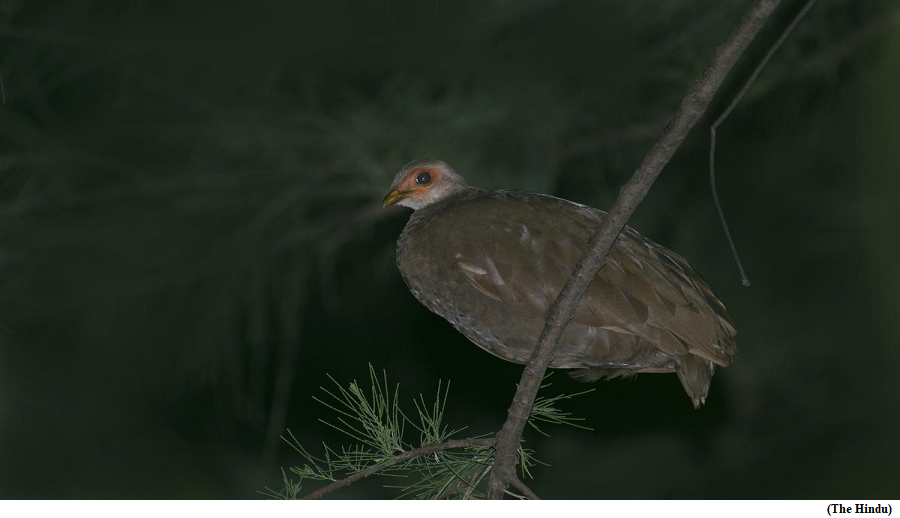5% of birds in India are endemic, says Zoological Survey of India (GS Paper 3, Environment)

Why in news?
- A recent publication by the Zoological Survey of India (ZSI) points out that about 5% of the birds found in India are endemic and not reported in other parts of the world.
- The publication, ‘75 Endemic Birds of India’, was recently released on the 108th foundation day of the ZSI.
Key Highlights:
- India is home to 1,353 bird species, which represents approximately 12.4% of the global bird diversity. Of these, 78 (5%) are endemic to the country.
- Three of the 78 species have not been recorded in the past few decades. They are
- the Manipur bush quail (Perdicula manipurensis), listed as “endangered” by the International Union for Conservation of Nature (IUCN) Red List of Threatened Species with its last recorded sighting in 1907;
- the Himalayan quail (Ophrysia superciliosa), listed as “critically endangered” with its last recorded sighting in 1876; and
- the Jerdon’s courser (Rhinoptilus bitorquatus), listed as “critically endangered” with its last confirmed sighting in 2009.
Endemic species in Western Ghats:
- The highest number of endemic species have been recorded in the Western Ghats, with 28 bird species.
- Some of the species recorded in the country’s bio-geographic hotspot are the
- Malabar grey hornbill (Ocyceros griseus);
- Malabar parakeet (Psittacula columboides);
- Ashambu laughingthrush (Montecincla meridionalis); and
- the white-bellied sholakili (Sholicola albiventris).
Way Forward:
- Since endemic species are restrictive in nature, it is important that their habitats are conserved so that they don’t dwindle out.
India to support clean water project at school in Tuvalu with $700,000
(GS Paper 2, International Relation)
Why in news?
- India will be providing support worth $700,000 from the India-UN Development Partnership Fund to the project in Tuvalu to store and provide clean water in school.

Details:
- ‘Motufoua Secondary School’ is Tuvalu's only public school.
- The proposed concrete water cistern, with a capacity of 760 metric cubes will store and provide clean water to students, teachers and school staff promoting hygiene and reducing water-borne diseases.
Developmental projects by India:
- In May 2023, Prime Minister Narendra Modi announced the ‘Sagar Amrut Scholarship’ scheme for the Pacific Island countries, at the Summit of the Forum for India-Pacific Islands Cooperation.
- He had also announced a 12-point action plan focusing on health, wellness and community development sectors as per priorities of the Pacific island countries.
- The water cistern project in Tuvalu is in pursuance of these initiatives focused on the importance of high-impact community development projects in areas of choice by the Pacific countries.
India-UN Development Partnership Fund:
- The India-UN Development Partnership Fund, established by the Government of India in June 2017, provides support to projects in developing countries that aim to contribute to achieving the Sustainable Development Goals.
- It adheres to the principles of South-South cooperation and places a priority on national ownership and leadership, equality, sustainability, development of local capacity and mutual benefit.
- A total of 150 million $ over the next decade has been committed by the Government of India for the Fund. Till date, 75 development projects across 56 countries have been supported through the Fund.



